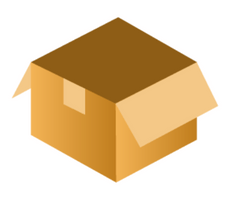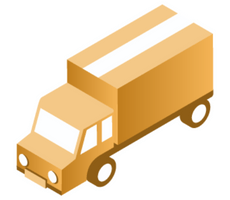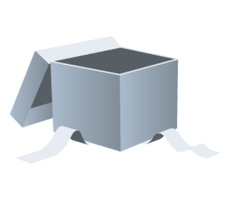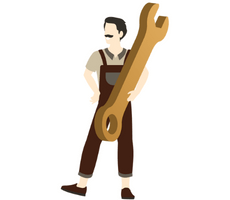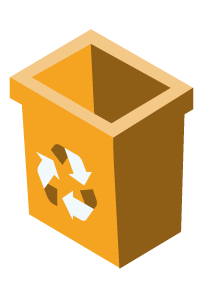Energy
Get expert advise on your energy bills so you get the best deal for you!
Moving
Make Your Move Easy With Our One-Stop-Shop!
Get expert advise on your energy bills so you get the best deal for you!
Find your perfect broadband deal!
Sort out your bin collection in one quick phone call!
Check out our collection of moving guides and resources to make your move as smooth as possible!
Going through the moving process is both stressful and exciting. There are lots of things to worry about and getting all your furniture, energy, broadband, bins, and people from A to B needs a lot of organisation. Luckily, we’re here to help with our comprehensive Moving section to make sure your move is as smooth and hassle free as possible!
If you’re all ready to move then it’s time to make sure you have a few things down before shoving everything in the back of a van and going to your new home. Planning your move will make moving in easier and straightforward.
Planning your move might look daunting at first with so much to remember but it will save you a lot of time and grief once you get going. Here are a few basic steps to sort out before you begin any moving:
No matter how much you need to pack when moving house, here are a few tips that will help you with any packing you have to do:
Hazardous materials! We often come across plenty of hazardous materials when moving house, be sure to dispose of these correctly at your recycling centre. If you bring these items with you, verify if there aren’t any special restrictions to transport the substance safely, such as liquid gas, and other flammable or explosive items.
After moving house, you should check your home for potential problems. A quick walkthrough on your first day in your new flat or house will either give you peace of mind and allow you to deal with any problems straight away. Even though you’ve explored the place thoroughly, home maintenance issues have a funny way of waiting until the contract is signed and the movers have left before they reveal themselves.
So what should you do if you do find a problem? If you’re renting, you should contact the owner, landlord or property manager straight away. In the Ireland, renters are guaranteed certain rights, making many home maintenance issues the responsibility of the owner.
If you are the owner of your home, you’re responsible for its upkeep. That means you’ll either have to hire a professional or tackle the project yourself. If you opt to hire someone to handle an issue with your home, be sure to find a reputable technician with all applicable licences and permits.
Before you start researching a contractor, plumber, or electrician, do a bit of research online. You may be surprised by how easily some seemingly intimidating problems can be solved with limited technical skills. Youtube and other video tutorials can be extremely helpful.

Moving House? Set up All Your Utilities At Once!
Set up your energy, broadband and waste in one hassle-free call!

Need To Sort Out Your Utilities for Your Move?
We're currently closed but please leave us your number and we'll give you a free call as soon as we're open!
When leaving a rented property, it’s important to do a complete moving home checklist to cover everything that needs to be done in order to leave the flat or house. A checklist is also important because it can help avoid any awkward situations between you and your landlord that result in you losing part or all of your deposit!
The messiest part of moving is when you have to sort out your utilities. Electricity and gas, waste collection and broadband are all essentials for your home and it’s best to have them set up on day one. Here are some tips to make sure you know exactly what to do and expect when moving.
When you move home, you will need to decide whether you want to keep your current energy provider or sign up with a new one. Either way, the first thing you will need to do is to get in contact with your provider and cancel your tariff or inform them of your move. If you want to cancel your contract, make sure you don’t have any exit fees to pay or debt to pay off.
You’ll need to locate your gas and electricity meters and take a meter reading to be sure everything is in order. If you find unexpected debt on the meter, you should contact your supplier to make sure you won’t receive bills for energy used by former tenants. You should also find your MPRN. You’ll need to know this reference number when calling your current or potential future energy suppliers.
What is an MPRN? Your Meter Point Reference Number (MPRN) are numbers that identify where your electricity and gas supply enters your property. They are like special addresses that are unique for each property to help energy suppliers provide the right home. Your MPAN is for your electricity and your MPRN is for gas.
Check Out Our MPRN Guide!
Remember, if you decide to switch, it will take between 14 and 21 days for the switch to take place and you will have a 14-day cooling-off period to change your mind. If the energy supply at your previous property was in your name, you should receive a final bill from your previous company within 6 weeks. If your account was in credit, the supplier will issue you a refund.
When moving house in Ireland, you will need to make sure you set up your waste collection services. In Ireland you have a range of different waste service providers to pick from but who you can choose depends on where you live or move to. You should take a look around at the different offers in your area choose the services you need, from recycling, glass and plastic!
Compare Different Waste Providers!
The broadband line for your house or apartment is most likely already connected. If it isn’t, some broadband providers will connect you with a line for free when you sign up for a broadband plan. If your provider doesn’t provide that free service or if you don’t want to sign up for a plan, you’ll have to pay a fee, which is generally around £130.
If you already have a broadband provider and don’t want to make a switch, contact them directly to confirm that they provide service in your new region. If they do, you should be able to transfer your same plan and service without any problem. You might have to pay a moving home fee between £20 to £60.
Watch out for exit fees! If you are switching broadband providers and still have time on your current contract, you will probably have to pay a cancellation charge.
Generally in the Ireland, getting broadband service also requires a landline (a non-mobile phone line). Luckily, providers generally sell a combined package of landline, broadband service, and TV.
As well as price, the most important thing in terms of choosing broadband is speed. Luckily, we’ve made it easy for you to be sure you’re getting lightning fast internet with our broadband speed test tool.
The TV Licence is still important if you want to watch live TV broadcasts and access RTÉ services such as RTÉ News, RTÉ iPlayer, and RTÉ Sport. Knowing the rules and conditions of the licence is complicated so we’ve created a series of guides to help guide you through what it all means.
If you are found to be watching live broadcasting without a TV Licence, you can receive a hefty fine from TV Licencing. If you are a student and have moved into new university accommodation, you must have a TV Licence of your own in order to watch TV.
There are also numerous different TV packages available, with different features including on-demand TV and streaming services included in your TV package that you can watch without a TV Licence!
If you're planning on moving to Ireland from the EU, the UK or rest of the world, you need to know what you need in order to come. If you're coming to study in Ireland, you'll also want to know about universities and how to apply!
Moving Home in 2026?



